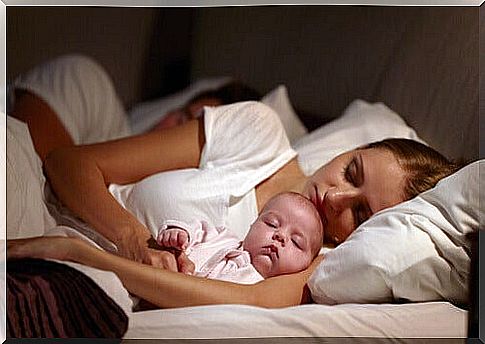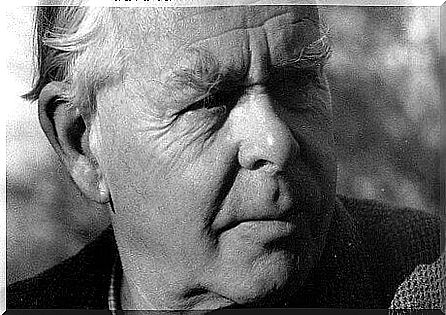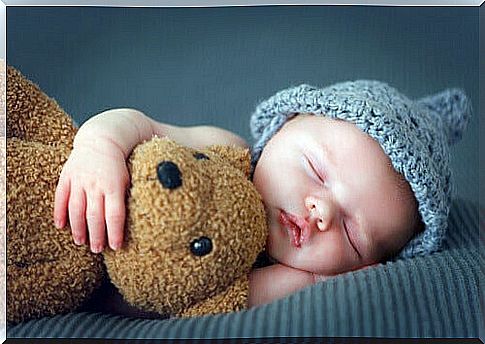Parents And Children: Sleeping With Mom And Dad?

Sleeping is one of the most pleasant physiological functions a human being can experience. In addition to the fact that a restful sleep brings joy, sleep is essential to conserve energy, to ensure the consolidation and learning of new information and to improve immune and endocrine function.
When we are born, we must first go through a process of adaptation until our sleep is consolidated. It is difficult for a newborn to sleep all night without interruption and very often nocturnal awakenings are accompanied by crying. In the long run, this ends up exasperating parents, who don’t know what remedy they can turn to to make their children sleep well.
The only solution is to have a good dose of patience and not to forget that, like any other human being, the baby will sooner or later fall asleep.
Lately, a current called “natural attachment education” has developed which argues that in order not to make children suffer, they must sleep in the same bed as their parents until they decide to abandon it themselves.
This current, more and more frequent in the West, has generated many debates and there are parents who defend it with the sword, arguing that this gesture will be good for the self-esteem and self-confidence of the little ones, while there are others completely in disagreement.
Where did the idea of sleeping with parents come from?
The defenders of such an education are based on the studies carried out by the psychoanalyst John Bowlby. He developed what we now call “attachment theory,” but the point is that it has nothing to do with what attachment education promulgates.

Bowlby was born in London, into an upper-class family; his father was a surgeon at the Royal House of Windsor. As was often the case at the time, Bowlby was cared for by a wet nurse, who was his main source of attachment, and he rarely met his parents.
At the age of 4, his nurse left and he described the separation as a tragic fact. At 7, he was sent to an academy where he felt very anxious and insecure.
Feelings like that were logical, and it is just as logical that, as an adult, he carried out studies stating that attachment is fundamental in the first six months of a newborn’s life.
Bowlby discovered the importance of this connection while observing that children who experienced extreme deprivation of attention and affection were more prone to academic and social failure, mental problems and chronic illness.
However, we are talking about extreme deprivation, mistreatment, neglect, neglect or neglect. The theory has been seriously misinterpreted nowadays, and many families believe that attachment is built by being attentive to the child 24 hours a day: carrying him as long as possible, reacting immediately to each cry, extending the period of breastfeeding or sleeping in the same bed for many years.
“This movement is a scam. It has adopted the same name of a scientific field that studies the development of the human being and this causes a lot of confusion ”- says one of the main referents in scientific research on attachment, psychologist Alan Sroufe.
Scholars from Sroufe, professor emeritus of the University of Wisconsin who has been analyzing the development of children for more than 30 years, have shown that a secure attachment is not achieved by sleeping with parents, receiving prolonged breastfeeding or being constantly in the mother’s lap. or dad. It emerges whether parents are able to react sensitively, appropriately and effectively to the signals of the newborn. The attachment will form with the person who will be able to do all this, once the child’s trust has been gained.
A misinterpreted science
You have to be very careful when interpreting theories, because nothing in the world is all white or all black when it comes to statistics, and even less so when it comes to judging the decisions of a family. William Sears, a staunch advocate of the shared bed between parents and children, argues his position by saying that excessive crying in the newborn can be harmful to the brain due to high exposure to stress hormones.
But Sears exaggerates, as the stress of certain sleepless nights cannot be described as chronic and cannot be compared to the stress suffered by Bowlby, who suffered neglect and neglect from his parents. Clearly, these are two different issues.

The psychological techniques for the adduction of sleep, on the other hand, are scientifically proven and do not produce any emotional damage in children, according to the 52 studies carried out in 2006 by the US Academy of Medicine.
The conclusion that can be reached thanks to all these data is very simple: every family must do what instinct tells it, but always keeping in mind that there is no single method to ensure that children grow up more or less safe. , self-confident and emotionally strong.
The question is not WHAT you do, but HOW you do it. To do this, you must be good interpreters of your children’s signals and be able to distinguish when they need affection, when they are sleepy, hungry or other needs.
No extreme is wholly healthy, it all depends on how you act. Giving in to all the whims of your child can damage their self-esteem and, more importantly, make them intolerant of the frustrations they will encounter throughout their life.
Being completely neglectful of the needs of children is not the best way to educate them either: the little ones depend on us and need, when the time comes, for us to respond to their needs.
So, sleep with mom and dad or not? Everything must be done in moderation and science must not be misunderstood. You can sleep with your children because it pleases you, but not with the idea that this will make them more prepared for life. Also, remember that people tend to be habitual, so teaching a child to sleep in his room can be very beneficial for his mental health and for the rest of the whole family.









